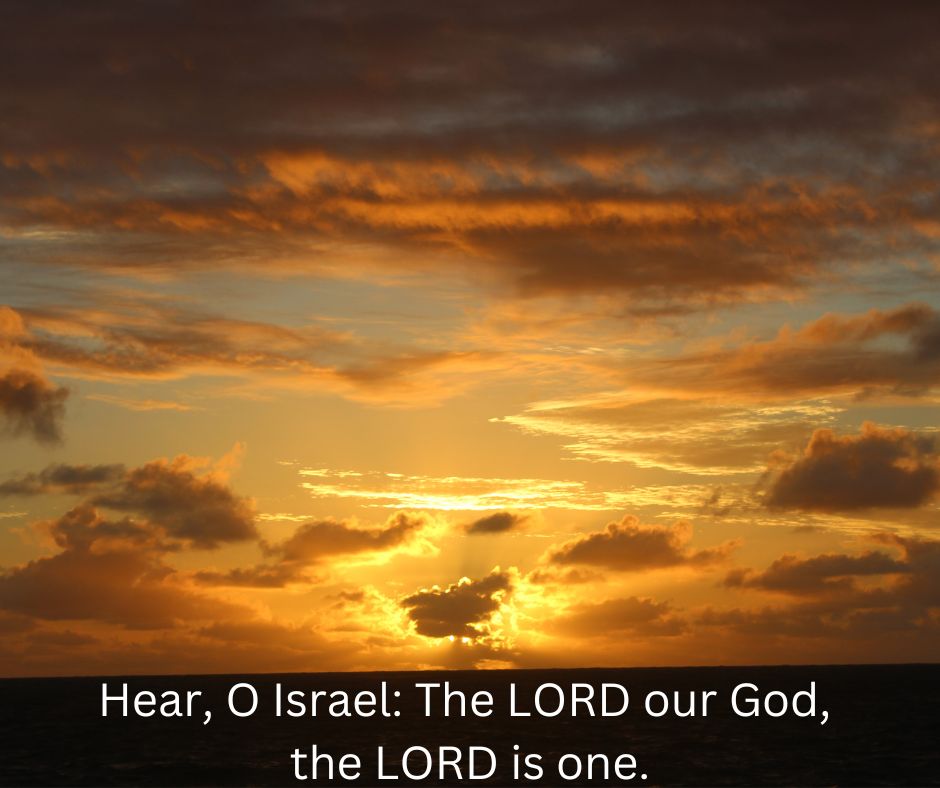
Unity in the Body of Christ
Ephesians 4:4-6
4 There is one body and one Spirit—just as you were called to the one hope that belongs to your call— 5 one Lord, one faith, one baptism, 6 one God and Father of all, who is over all and through all and in all.
One Body
4 There is one body and one Spirit—just as you were called to the one hope that belongs to your call. The statement there is one body may seem a bit unusual. What is Paul referring to? He already mentioned in this epistle that the church is the body of Christ:
And he put all things under his feet and gave him as head over all things to the church, 23 which is his body, the fullness of him who fills all in all. (Ephesians 1:22-23)
Paul also in Romans mentions the church being the body of Christ:
4 For as in one body we have many members, and the members do not all have the same function, 5 so we, though many, are one body in Christ, and individually members one of another. (Romans 12:4-5)
The term “body” is sometimes used to describe a group of individuals regarded as an entity, such as a governing body. Some people think that Paul is referring to an illustration here that the church is like a body. But, a more radical understanding is that all believers who have the Holy Spirit residing in them are the body of Christ on the earth now. This is sometimes referred to as the corporate body of Christ.
The word one features heavily in this passage. We usually understand the word as meaning a single unit, unique or the number 1, but it can also mean unity, as in “they become one”. So the next phrase one spirit needs to be thought about. There is one Holy Spirit. but the Holy Spirit can be everywhere:
Where shall I go from your Spirit?
Or where shall I flee from your presence?
If I ascend to heaven, you are there!
If I make my bed in Sheol, you are there! (Psalm 139:7-8)
I like to think an illustration of the Holy Spirit could be like the atmosphere around our world. You can not see it but you can feel the wind and the temperature, you breathe air that gives you life-giving oxygen. The atmosphere is everywhere yet it is still one. Of course, the atmosphere has no intelligence or personality so the illustration breaks down because the Holy Spirit is God and has the same attributes of God.
Paul said that the unseen world is more real than the decaying world we see around us.
For this light momentary affliction is preparing for us an eternal weight of glory beyond all comparison, as we look not to the things that are seen but to the things that are unseen. For the things that are seen are transient, but the things that are unseen are eternal. (2 Corinthians 4:17-18)
One Lord
5 one Lord, one faith, one baptism, Paul continues to stress the uniqueness, unity and singleness of our Lord
“Hear, O Israel: The LORD our God, the LORD is one. 5 You shall love the LORD your God with all your heart and with all your soul and with all your might. (Deuteronomy 6:4-5)
These verses are so important to the Jewish people and are part of what is known as the Shema. The belief in one God is one of the most important aspects of Jewish tradition, that set the Children of Israel apart from the nations that surrounded them. It is still recited every morning and evening and some consider it to be the most important Jewish prayer. The Hebrew word translated as ‘one’ is אֶחָֽד ‘eḥāḏ which as well as meaning singular also means united, alike, alone, altogether, and one of a kind. The meaning of ‘eḥāḏ in this verse is the subject of great theological debate, ranging from meaning singular/unique (only one God), to diversity within unity (like many different people making up one nation). Christians state there is only one God but he is made up of three persons, The Father, The Son and the Holy Spirit (diversity within unity).
Paul goes on to mention one faith and one baptism. We are all called to have faith in God (Mark 11:22) and to trust the Lord with all our hearts (Proverbs 3:5).
God the Father
6 one God and Father of all, who is over all and through all and in all. Among all the theological discussions the subject of God the Father falls far behind in current debates. Jesus encouraged us to address God as “Our Father” (Matthew 6:9). Interestingly, Jesus encourages the plural use of “our” as opposed to “my”, which reflects the need to see ourselves in the Body of Christ, mentioned in the last post. Jesus is recorded as referring to God as “My Father” over 40 times in the New Testament.
God is referred to as Father in the Old Testament as well:
Therefore David blessed the LORD in the presence of all the assembly. And David said: “Blessed are you, O LORD, the God of Israel our father, forever and ever. For you are our Father,” (1 Chronicles 29:10)
though Abraham does not know us,
and Israel does not acknowledge us;
you, O LORD, are our Father,
our Redeemer from of old is your name.
(Isaiah 63:16)
God is over all and through all and in all. He is Omnipotent, all-knowing, all powerful, all wise. And yet he wants an intimate relationship with the people He created, which he has given us through the Gospel of Jesus Christ